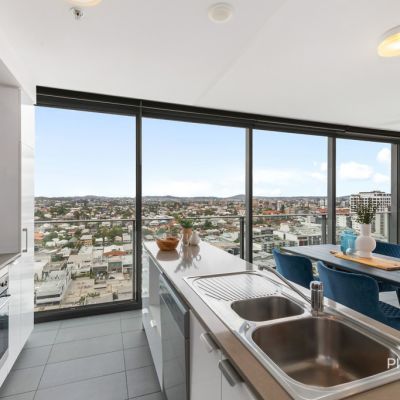Should property investors know if tenants have posted about their last landlord?
Property managers are routinely checking if tenants have complained about their landlord or real estate agent on social media, particularly during the application process.
Agents are likely to tell each other about tenants known to make disparaging comments on social media, the real estate industry peak body confirmed. Meanwhile, tenant advocates report that agents attempt to gain access to closed Facebook groups to see what tenants discuss behind closed doors.
This masthead has seen a tenant reference form, intended for a landlord or property manager, which asked if the tenants have “been known to post comments on social media that could damage the landlord or agent’s reputation”. It was marked as a compulsory question on the form.
The form was hosted by third-party application platform 2Apply. A spokesman for Inspect Real Estate, which owns 2Apply, said all questions on the form are set by the leasing agency. The platform used to ask tenants to list their social media accounts, but no longer has fields for the information.
The agency which set the question did not respond to a request for comment by deadline.
It is not compulsory to provide a reference, but doing so would probably help a tenant’s application.
Real Estate Institute of Australia president Leanne Pilkington said it was a common question that came up when property managers checked references, though not one she had asked. She estimated that about a third of agents would ask the question of an applicant’s previous property managers.
“It must be agents that have had a bad experience with being trashed online,” she said. “It was a surprise to me, but both of the property managers I’ve spoken to are aware that it can be asked.”
Tiktoker Jordan van den Berg, known for his spirited defence of renters and criticism of agents and landlords, runs a popular tenants’ Facebook group, Don’t Rent Me, in which he recently removed property managers from the members list en masse.
He indicated property managers or landlords could be routinely monitoring a tenant’s social media usage and argued the question was not necessary to process a tenancy application.
“Don’t Rent Me is a safe space for renters to share their stories and ask for advice so they can warn other people about dodgy properties and if they’re experiencing difficulty, they can ask a community of tenants for advice about their situation,” van den Berg said. “If their landlord or agency is in that community watching what they say, it will raise some concerns about renters’ safety and their housing.”
He said the practice was concerning because it punished tenants for venting about issues that may not have been their fault.
“When tenants post things that damage the landlord or agency’s reputation, it isn’t the fault of the tenant for damaging their reputation,” he said. “They damaged their reputation and the tenant has posted about it. Do they ask [have you done anything to damage an agency’s reputation] of a landlord when they take them on? The answer is no. So they shouldn’t be asking that question of tenants.
“Denying someone access to a human right [of shelter] on the basis of a social media post is fundamentally wrong, if that post is perfectly legal.”
The two other major third-party application solutions, Snug and Ignite, said they did not include the questions in their reference forms.
“Snug respects the privacy of renters and the precious time of property managers. Therefore, Snug does not ask about renter social media profiles or activity throughout the rental application process,” Snug chief executive Justin Butterworth said.
Pilkington said she believed the purpose of asking about social media usage was to gauge if the agent and tenant would have a cordial relationship.
“It’s like an employment reference right, is there anything else that we should be aware of? That’s when you get the opportunity to say if they’re difficult… but it’s about paying the rent on time and looking after the property,” she said. “People have the right to free speech, but it depends on what they say and how they say it.”

Pilkington said an unfavourable but honest review would be acceptable, but online abuse would not.
Better Renting director Joel Dignam said the practice embodied the imbalance of power between renters and landlords.
“The bottom line is this isn’t relevant for the tenancy and it’s an abuse of the power that agents have [access to] because they have so many tenants to choose from in a tight market,” he said. “We don’t need to be tone-policing renters who are otherwise suitable.”
Dignam said state governments should better regulate references that can be provided when applying for a rental, to prevent suitable candidates from being discriminated against.
“What it points to is the fact that the application process is so unregulated,” he said. “Maybe you can’t get kicked out of your current rental [for complaining] but if you apply for your next one in the current market, what will your agent say about you?”
We recommend
We thought you might like
States
Capital Cities
Capital Cities - Rentals
Popular Areas
Allhomes
More
- © 2025, CoStar Group Inc.










